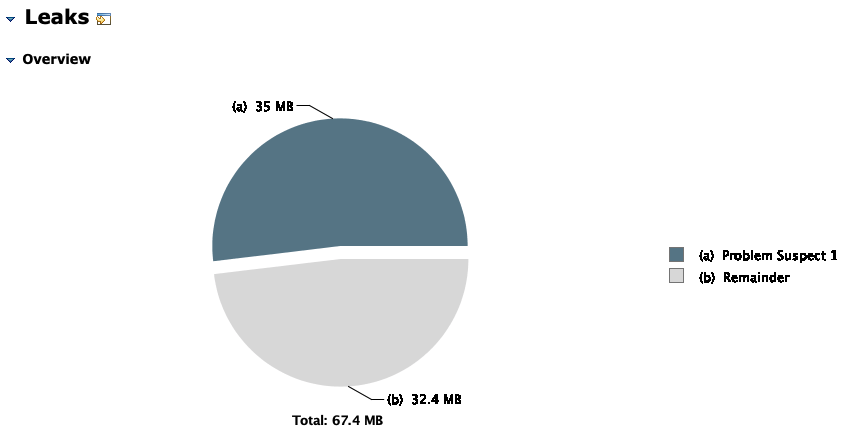Async Log4j2, memory leak?

Recently in a project that we are been working on, we found a significant increment in the boot time of a Spring Boot application. This happened when we activated asynchronous logs with Apache Log4j2.
What
In order to improve the performance in our application, we decided to use Apache Log4j2 in asynchronous mode. In the majority of our applications we are using a very limited memory, and when we added this asynchronous feature we found that the boot time had incremented from 30 seconds to more than 1 minute in some cases. It was ridiculous!
Analyzing with jvisualvm and making a memory dump of our application in asynchronous mode we found that ~40Mb of memory is used by RingBufferLogEvent:

However, making a memory dump using synchronous mode we foud this:

Why
The implementation of Apache Log4j2 in async mode uses a RingBuffer to buffering all the logs content. By default uses 262144 slots (256 * 1024). This causes an initial memory reserve of approximately 40 megabytes and in a environment with a limited memory causes the memory head to be always full and therefore the starting slowdown.
How
In the case that you don’t need so many slots, we have two possibilities to reduce the memory:
- Use synchronous mode
- Use asynchronous mode with a shorter RingBuffer size. To do this we have to decrement the number of slots using the next property. The minimum value is 128. An example of 32768 (32 * 1024) slots that reserves about 5 Mb of memory.
Log4j >= 2.10
1
log4j2.asyncLoggerRingBufferSize=32768
Log4j < 2.10
1
AsyncLogger.RingBufferSize=32768
Here a table with approximately the reserved memory depending on the slots
1
2
3
4
5
| Slots | Memory |
|-----------|--------|
| 128 | <1Kb |
| 32*1024 | ~5 Mb |
| 256*1024 | ~40 Mb |
More info in Apache Log4j2
 Never miss a story from us, subscribe to our newsletter
Never miss a story from us, subscribe to our newsletter